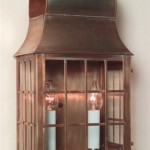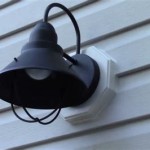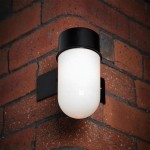Why Is My Outdoor Light Buzzing?
A buzzing outdoor light can be a minor annoyance or a sign of a serious electrical problem. Understanding the potential causes allows homeowners to address the issue safely and effectively. This article explores the common reasons behind a buzzing outdoor light fixture and offers guidance for troubleshooting.
Loose Wiring
One of the most frequent culprits of a buzzing outdoor light is loose wiring. Over time, vibrations from wind, temperature fluctuations, or even nearby traffic can loosen the connections within the fixture. These loose connections can create an electrical arc, generating the buzzing sound. The arc can also damage the wiring and pose a fire hazard. Inspecting the wiring for tightness at the fixture's base, within the junction box, and at the switch is crucial. Tightening loose connections often resolves the buzzing.
When inspecting wiring, always ensure the power to the light is turned off at the breaker box. Using a voltage tester to confirm the absence of power is a recommended safety precaution. If unsure about handling electrical wiring, consulting a qualified electrician is advisable.
Incompatible Bulb Type
Using an incorrect bulb type can also lead to buzzing. For instance, using a standard incandescent bulb in a fixture designed for LED bulbs, or vice-versa, can cause compatibility issues. The electrical system of the fixture is designed for a specific range of wattage and voltage. Using an incompatible bulb can stress the system, leading to buzzing and potential damage to the fixture or the bulb itself.
Checking the fixture's specifications and ensuring the bulb's wattage and voltage are within the acceptable range is important. Using the correct bulb type, as recommended by the manufacturer, can eliminate the buzzing sound and ensure optimal performance.
Ballast Issues (For Fluorescent and HID Lights)
Fluorescent and High-Intensity Discharge (HID) lights utilize a ballast to regulate the electrical current to the bulb. A malfunctioning ballast is a common cause of buzzing in these types of fixtures. The ballast can fail due to age, power surges, or exposure to the elements. The buzzing sound can indicate an impending ballast failure, and replacing the ballast is often the necessary solution.
Identifying a faulty ballast usually requires some troubleshooting. If the bulb itself is not the issue, and the wiring connections are secure, the ballast is the likely suspect. Replacing a ballast should be done with the power turned off and ideally by a qualified electrician.
Insect Activity
Insects, particularly those attracted to light, can sometimes find their way into outdoor light fixtures. Their activity within the fixture can create a buzzing or crackling sound. While usually less serious than electrical issues, insect presence can still cause problems. They can build nests, interfere with wiring, and even create fire hazards.
Regularly cleaning outdoor light fixtures can help prevent insect infestations. Sealing any openings or cracks in the fixture can also deter insects from entering. If insects are already present, removing them and cleaning the fixture thoroughly should resolve the buzzing.
Fixture Vibration
In some cases, the buzzing sound may not originate from the electrical components of the light fixture but rather from the fixture itself vibrating. This can occur if the fixture is loosely mounted or if there is vibration from nearby machinery or traffic. The vibration can cause parts of the fixture to resonate, producing a buzzing sound.
Checking the fixture's mounting and ensuring it is securely attached to the wall or ceiling can address this issue. Tightening any loose screws or bolts can eliminate the vibration. Adding padding or insulation behind the fixture can also dampen vibrations and reduce buzzing.
Overloaded Circuit
An overloaded circuit can sometimes manifest as a buzzing sound in connected fixtures, including outdoor lights. If the circuit is drawing more current than it is designed to handle, it can stress the wiring and components, resulting in buzzing or other electrical issues. This is a more serious problem that requires attention to prevent potential fire hazards.
Determining if a circuit is overloaded requires identifying all the devices connected to that circuit. Calculating the total wattage of these devices and comparing it to the circuit breaker's rating can indicate an overload. If the total wattage exceeds the circuit's capacity, some devices need to be moved to another circuit or the circuit breaker needs to be upgraded by a qualified electrician.

Why Do My Lights Hum 1000bulbs Blog

What To Do If Your Porch Light Attracts Bugs Bpm Electric

Outdoor Spotlight Buzzing Sound R Homeimprovement

Why Is Led Light Buzzing When Dimmed 4 Causes Fix Lighting Info

Why Do My Lights Hum 1000bulbs Blog

What Causes My Outdoor Lights To Flicker

3 Causes Of Lights Buzzing Humming Sound From Light Bulb

What Causes My Outdoor Lights To Flicker

Why Are My Lights Buzzing Earlybird Electric

Why Led Light Buzzing 4 Reasons And Ways To Fix Recessedlightspro
Related Posts







